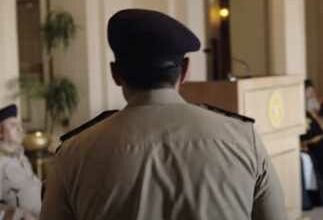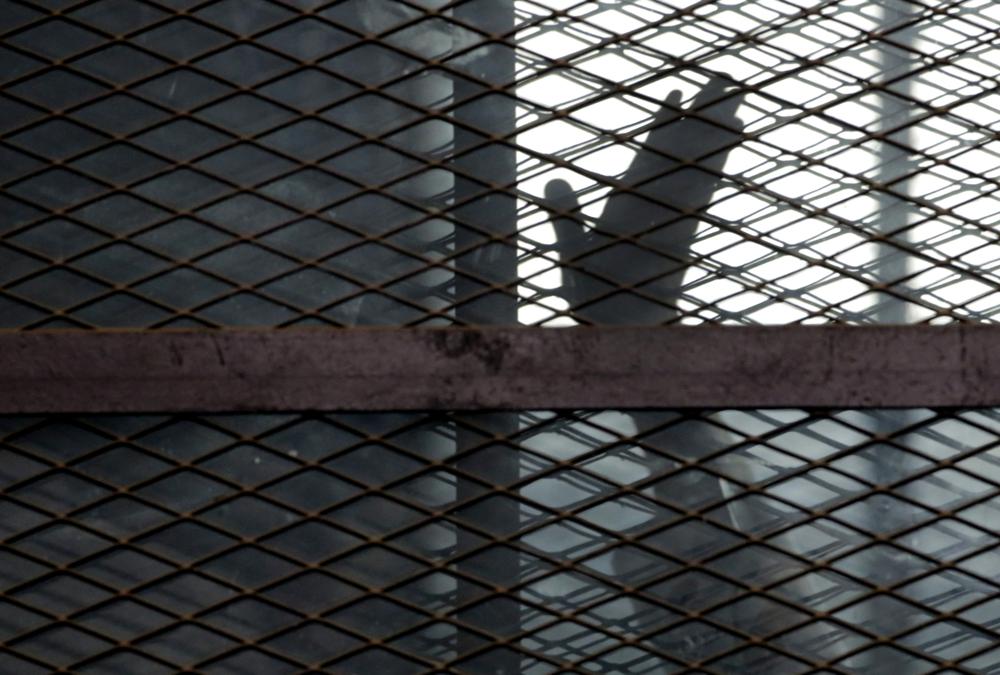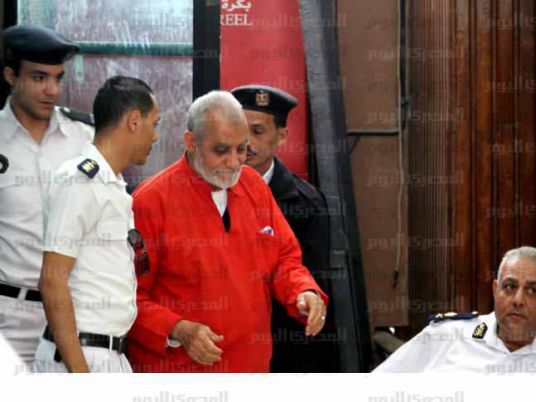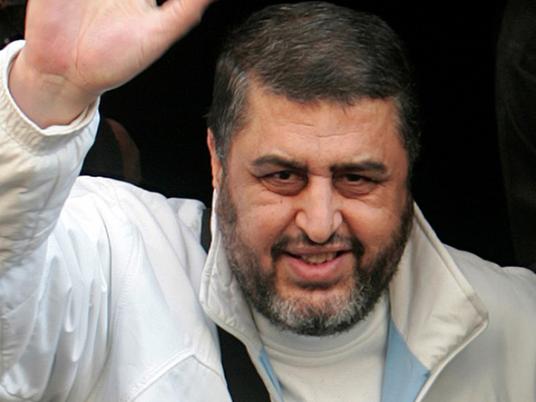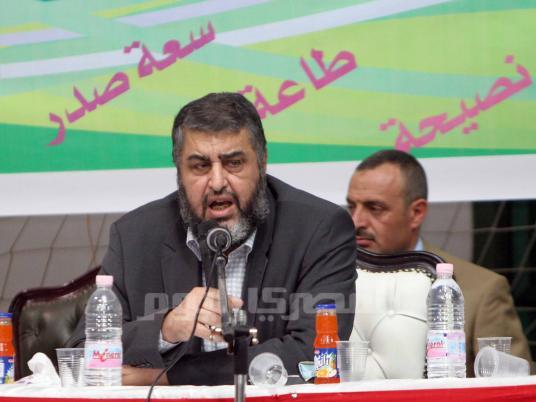
Presidential hopeful Khairat al-Shater described the ruling issued on Wednesday by the Cairo Administrative Court on a challenge to Hazem Salah Abu Ismail's presidential campaign as "a victory for the credibility of Islamists."
In an interview with the satellite channel Al-Nas on Wednesday, Shater commented about the ruling obligating the Interior Ministry to provide Abu Ismail with documents concerning the citizenship of his mother.
Candidates are not eligible to run for president if their spouses or parents have ever held any nationality other than Egyptian, including dual citizenship.
Abu Ismail's lawyer said the ruling, which appears to confirm his mother was Egyptian, was a "historic victory." However, it does not rule out the possibility that other authorities besides the Interior Ministry could have evidence that his mother held US citizenship, or prove she did not.
Shater accused the media of "systematic shelling" of the Muslim Brotherhood and of "blowing some of the statements given by some of the group's leaders out of proportion."
Shater attributed what he viewed as biased press coverage to the fact that most media outlets are owned by "businessmen who amassed their wealth under Mubarak" and "are therefore keen on tarnishing the image of the Brotherhood to keep their interests with the former regime, which they are reproducing."
When the presenter told him that his nomination has "disrupted the electoral scene," Shater disagreed, saying it " brought vitality to the electoral scene."
Regarding the candidacy of former Vice President Omar Suleiman, Shater said it is a sign that the people have only removed the head of the regime, while the rest of its body remains.
Shater refuted accusations alleging that the Brotherhood, the ruling Supreme Council of the Armed Forces and the US had made a deal for the presidency. He said the group opposed the SCAF when constitutional legitimacy was at stake, as when "there were attempts to impose [former deputy Prime Minister] Ali al-Selmy's supra-constitutional principles document."
He also cited the Brotherhood's organization of two million-man protests against challenges to the legitimacy of the interim constitution approved in a March 2011 popular referendum.
Shater said the Brotherhood always turns to dialogue as a first option and taking to the streets in protest as a last resort.
Shater attributed the divisions within the group since the outbreak of the revolution to the fact that some members suffer from "psychological problems and extremism." He added that they refused to submit to the will of the group's Shura Council and wanted to go against the majority and form new parties.
"Those who left the group do not exceed 10 percent of its members,” he said.
Regarding recent statements by independent MP Amr Hamzawy describing Shater's candidacy as "an unsuccessful political move" for the Brotherhood, Shater said the comments were normal considering Hamzawy is a liberal who is naturally opposed to the candidacy of a Brotherhood member.
Addressing those who demand that he resign from the Brotherhood after being nominated, Shater said, "Was any American president asked by his voters to leave the party that he belongs to?"
Shater said political struggle to seize power is "a legacy of the West and has nothing to do with Islam," adding that when the Brotherhood seeks to have a president or form a government, it is does so not out of a desire to "seize power but to be in a position to serve the nation and achieve its renaissance."
The 61-year-old is the Brotherhood’s key financier. He is described in some Arab media as the Muslim Brotherhood's "hawk." He joined the Muslim Brotherhood in 1981 after years as a student activist and was promoted to its guidance bureau in 1995.
Translated from Al-Masry Al-Youm

